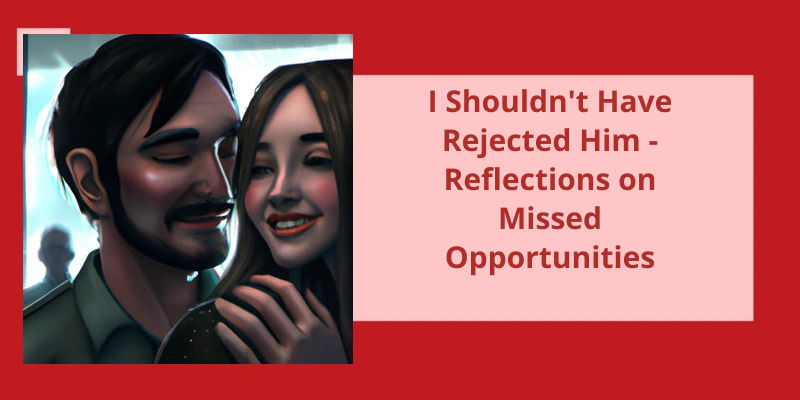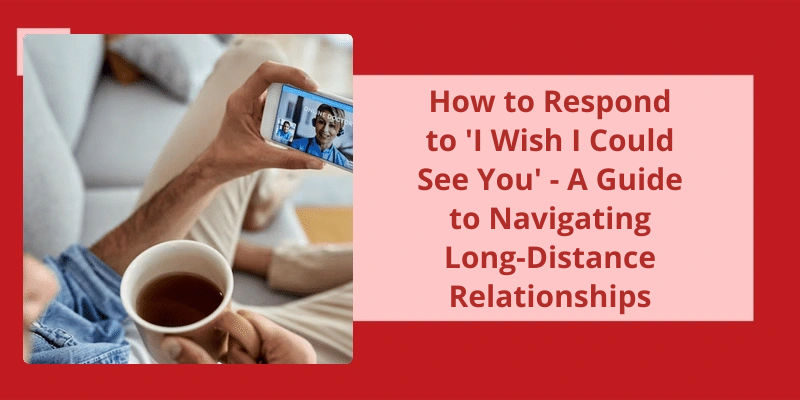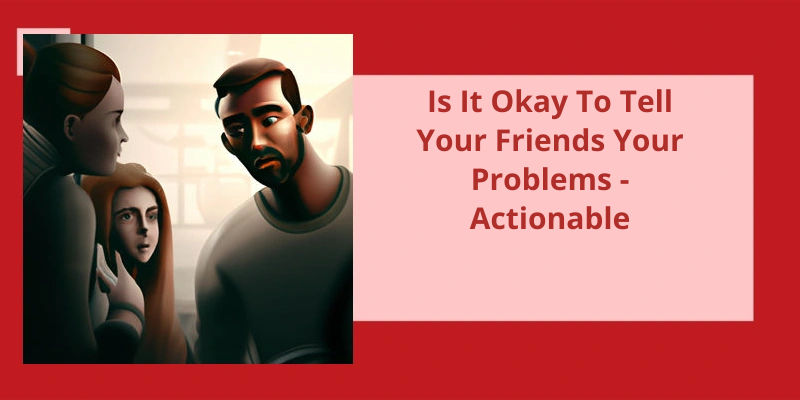As humans, we often make mistakes in life that we later come to regret. One such mistake may be rejecting someone who’d genuine feelings for us. Perhaps the timing wasn't right, or maybe we were too blind to see what was right in front of us. Whatever the reason, the aftermath can be difficult to bear, and we may find ourselves wishing we’d made a different decision. But in life, we can only learn from our mistakes and move forward, hoping that we don't make the same mistake twice.
How Do You Reject a Guy Without Making Him Feel Bad?
Weve all been there – you meet a guy, and although hes nice, you just don’t feel a connection. It can be hard to let someone down easy, especially if youre worried about hurting their feelings. However, being direct is the key to rejecting someone without making them feel bad. Honesty is crucial, and it’s important to be clear about your feelings from the outset.
When it comes to rejecting someone, it’s important to keep it simple. Dont beat around the bush or go into unnecessary detail – the simpler, the better. Avoid mentioning physical traits or any other characteristics that may be hurtful, and try to focus on your own feelings and preferences.
Although it can be tempting to apologize, it’s important to remember that you havent done anything wrong. If youre not interested in someone, it’s not your fault, and you don’t owe them an apology. Simply be honest and straightforward, and avoid getting bogged down in unnecessary explanations.
If youre not comfortable with face-to-face rejection, a call or text is a perfectly acceptable way to let someone down. This can take some of the pressure off, and allow you to express your feelings in a more controlled environment. However, it’s important not to drag things out, or to keep the other person hanging on indefinitely.
However, it’s always better to be honest than to string someone along or give false hope. Remember that rejection is a natural part of the dating process, and that it’s okay to want something different.
Theres no one right way to reject someone without making them feel bad. However, by being direct, keeping it simple, and avoiding unnecessary apologies or explanations, you can let someone down in a respectful and considerate way.
How to Handle Rejection if You’re the Person Being Rejected.
Dealing with rejection can be difficult but it’s important to keep in mind that rejection is a normal part of life and not a reflection of your worth as a person. It’s okay to feel disappointed or hurt, but you should try not to dwell on it. Instead, take some time to process your emotions, practice self-care, and focus on moving forward. Remember that rejection isn’t the end of the road, but rather an opportunity to learn and grow.
The way we communicate rejection can have a significant impact on the person being rejected. According to new research, apologizing when rejecting someone may not be the best approach. Rather than soothing the rejection, it could exacerbate the hurt. This raises the question of how to gracefully reject someone without causing any harm.
Is It Okay to Say Sorry When Rejecting Someone?
Rejection is an essential part of our lives. It comes in many forms, from being rejected at a job interview to being rejected by someone you’ve a crush on. Rejection hurts, and it can leave people feeling vulnerable and insecure. However, is it okay to say sorry when rejecting someone? This is a question that’s been debated among psychologists and social researchers for years. The answer isn’t straightforward, and it largely depends on the social context in which the rejection occurs.
The research also suggests that the best way to reject someone is to be honest and straightforward. This means being clear about why you’re rejecting them and what your feelings are. It’s essential to do this in a sensitive and compassionate way that acknowledges the other persons feelings. This can help the person being rejected to accept the rejection and move on.
How to Reject Someone in a Professional Setting
When rejecting someone in a professional setting, it’s important to be kind and honest. Start by thanking them for their interest or proposal and then provide a clear and direct explanation for why you can’t accept it. Be sure to remain professional and respectful throughout the conversation. It’s also a good idea to offer an alternative if possible or suggest that you may consider their proposal in the future.
We’ve all been there – you’re not interested in someone who’s interested in you, and you need to let them down gently. It can be a difficult and uncomfortable situation to navigate, but it’s important to handle it with kindness and honesty. Here are some tips to help you stop feeling bad about rejecting a guy, and come out of the situation feeling confident and empowered.
How Do I Stop Feeling Bad About Rejecting a Guy?
Rejection is never easy, no matter what side of the situation you’re on. It’s totally understandable to feel guilty or unsure of yourself when rejecting a guy, but it’s important to remember that it’s not your responsibility to make everyone happy. Saying no – honestly and politely – right in the beginning is the best way to avoid feeling bad about rejecting someone later on. By being upfront, you show that you respect both yourself and the other person enough to be honest from the start.
One of the worst things you can do when rejecting someone is to string them along. This means leading them on or giving them false hope when you’ve no intention of pursuing a relationship. Not only is this unfair to the other person, but it will also make you feel even worse when you eventually have to turn them down. Instead, be honest about your intentions from the beginning and avoid giving mixed signals.
Another way to soften the blow of rejection is to give friendly compliments as you decline. This shows that you appreciate the person and their efforts, but that you just don’t see a romantic future between you. This can also help to build their confidence and let them know that they’re attractive and desirable even if things didnt work out between you.
Excuses are tempting when it comes to rejection, but they’re ultimately unhelpful and even dishonest. Making up excuses can give the impression that there’s still hope for a relationship down the line when in reality that may not be the case. Instead, focus on being honest and straightforward, even if it’s difficult.
Feeling guilty after rejecting someone is normal, but it’s important to remember that it’s not your fault if someone has feelings for you that arent mutual. You should never feel obligated to date someone just because they’re interested in you. It’s important to prioritize your own feelings and happiness, even if it means hurting someone elses feelings in the short term.
Finally, don’t get discouraged if you’ve to reject someone. It’s all part of the dating process and it happens to everyone at some point. Focus on being honest and respectful, and keep looking for someone who’s a better fit for you. Remember that rejection isn’t a sign of failure or inadequacy, but simply a part of navigating relationships and finding the right person for you.
How to Deal With Someone Who Is Abusive or Aggressive After Being Rejected
When dealing with someone who becomes abusive or aggressive after being rejected, it’s important to prioritize your safety and seek help if necessary. Avoid engaging in further conversation or contact with the individual, and consider involving law enforcement if you feel threatened or in danger. Remember that you’ve the right to say no and set boundaries, and seek support from trusted friends and family members during this time.
Conclusion
Life is full of decisions, some good and some not so good. Whenever we make a decision, we need to consider the potential consequences, both positive and negative. However, there are times when our choices lead to regret, and we wish we’d done things differently. Rejecting someone is one of those choices that can come back to haunt us. Whether we reject someone out of fear, insecurity or something else entirely, we often look back and wish we hadn't done it. In many ways, it’s better to take a chance on someone and see what may come of it. Rejecting someone can have long-lasting repercussions, not only on the rejected party but also on ourselves. It’s crucial to consider the bigger picture, understand our emotions and vulnerabilities, and think carefully before making any decisions that might have lifelong consequences. In the end, it's vital to let go of our regrets and move forward, learning from our mistakes, and making the most of what we have.






